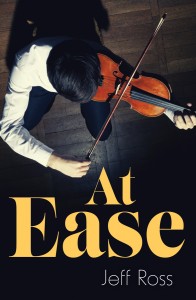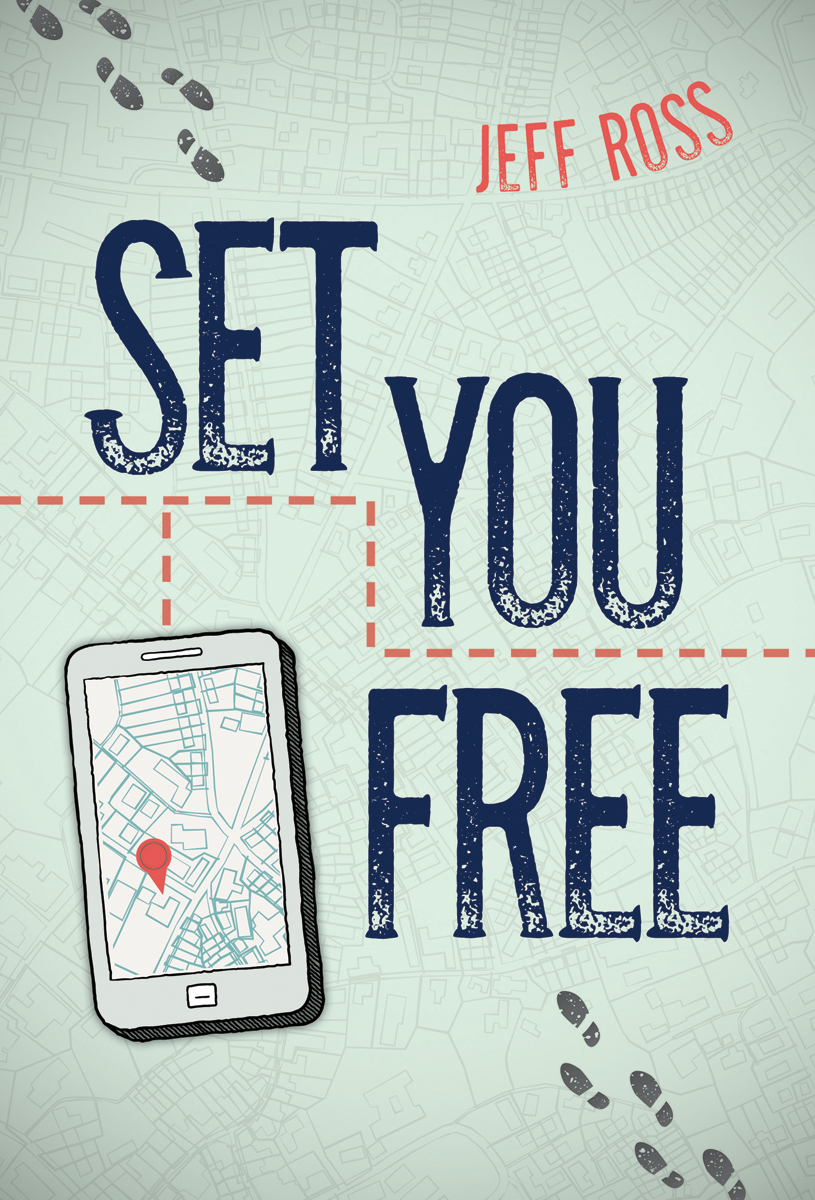Jeff Ross is the author of two new works of fiction: At Ease, part of the Orca Limelights series, and Set You Free, a standalone YA novel.
Jeff, how do you get into the mind of your target audience?
Readers in this age group are passionate about what they like and dislike. Which is a consideration you can’t have in your mind while writing YA books. As a writer you know some people are going to love your work, while for others it isn’t going to fit. Which is fine. So, I can’t really attempt to get into the mind of the target audience. Instead,I get into the mind of my protagonists. Very quickly, in most of my works, it is not ‘what would a fifteen year old think of this?’ and, instead, ‘what would my protagonist think of this?’ As a college professor, I work closely with 17 and 18 year olds who are very good at looking back critically about how they behaved in high school, how they thought, and what it was that concerned them the most. If I have a question about what a person ‘might’ think or feel, I will ask them. I can also remember my own teen years fairly well as I never saw them as something I had to get through. I saw them as some of the most interesting years of my life which helped make me who I am now.
Was there a research component to your books?
With Set You Free I was able to use my interest in digital privacy. I did some research into the specifics of what is actually possible on the level that Grady is operating. The main ‘research’ I did, though, was filling out my imaginary Resurrection Falls, a location I have used in a number of Orca books. Some day I’ll get around to drawing a map of the city based on what I have written.
For At Ease, my eldest son plays violin. He has never shown any kind of nervousness during or before recitals. I asked him about it and, at his age (10) he just didn’t see it as any big deal. But some of the older kids are very very nervous. Though, as a member of the audience and someone who has researched performance anxiety, I can’t see it. This left me thinking about what nerves really are. We feel as though everyone in an audience can see how nervous we are, which makes us more nervous, which then causes performance issues. But, truly, nerves are our minds worrying about the wrong things. When we should be concentrating on our performance, making certain it is as good as it was in practice, that we are enjoying ourselves and feeling the music, we are, instead, worried that we’re boring someone, or that the whole audience is judging us and waiting for us to fail. Which cannot be further from the truth. Through research, and speaking with violinist James Ehnes, I discovered ways to combat nervousness and used these techniques for Will in At Ease.
Is there a story behind the creation of your stories?
Set You Free is about a sibling who had, at one time, not believed in her brother. That is the basis of the whole story, and what drives the narrative. Lauren had a moment when she didn’t believe in Tom, because no one else did, and because of this she will go to any lengths to prove he is innocent of what he is, in this book, being accused of.
At Ease : At a recital for my son’s violin studio, I watched a young girl be completely unable to perform. She started, had couple of bad notes, fell apart, and was unable to get going again. The whole audience was pulling for her, wanting this girl to be able to get through the piece. But she simply couldn’t. I was so interested in the psychological and physiological aspects of performance that I began looking into the causes and cures for this particular anxiety.
What’s your favorite season and why?
I love the Summer because I can step outside my door and go skateboarding with my kids almost any day. Not having to put on eight layers of clothing is a bonus as well. On the other hand, once you have those eight levels of clothing on in the Winter, it’s a quick drive to the local hill for snowboarding. The Fall is great because school starts again for me and I love teaching scriptwriting. But, then, the Spring is awesome as well because the days are getting longer and warmer and the Summer is right around the corner. I guess I just like the whole year.
What’s the least glamorous part about being a writer? And the most glamorous?
My work ‘outfit’ (pajamas) are pretty unglamorous. The best thing, post publication, is going into a school where tons of the kids have read my books and having endless questions about writing, reading, and the sports I enjoy.
Is there an important issue or theme in your book(s) that you are passionate about?
At Ease: I believe that music is unique to the performer. Each person interprets a piece in his or her own way. This is what music is, the interpretation of notes on a page by the performer. Nerves get in the way of this interpretation. The theme of At Ease is understanding that you, as a musician, love the music, love playing the music, and whether there’s no one near you while you play, or a thousand people, what you are doing is the same. You are expressing yourself through the playing of those notes and, when there are others around, attempting to make a real emotional connection with people.
Do you have any unique hobbies or pastimes?
I don’t know if this is unique or not, but I’ve never stopped snowboarding and skateboarding. I love both those sports and tend to get out every day when the weather is good for skateboarding (longboard or regular) and a couple times a week in the winter for snowboarding.
When you hit writer’s block, how do you push through it?
I no longer believe in writer’s block. Most of the time what someone might call writer’s block is nothing more than fear. The fear that (s)he might write a chapter or two that will later have to be deleted. |Which is really, for me, a form of laziness. You want to get through a book, see the end, and get onto the next one. Another name for writer’s block is procrastination. If someone truly loves writing, then it shouldn’t be a chore to sit down at the computer. Although some days it is. I do a fair amount of long distance running and the first five kms are the worst. But after those five, there is rarely anything else I’d rather be doing. It’s the same with writing. Getting the first couple of sentences down is often difficult. Our brains are not set to jump into this imaginary world right away. So, I believe the cure for writer’s block is to write. Editing is the soul of all novels and you can’t edit a blank page.
Anything else you’d like readers of the Orca blog to know about you or your book?
Set You Free is my first full length, stand alone novel. I am very happy it is coming out and hope readers will really enjoy it. I loved writing from the perspective of a female protagonist, something I have not done before. It added an extra bit of guess work for me. Though, in the end, I got to know Lauren and understood how she would think and act so I was no longer writing from a ‘female’ perspective, I was writing from her perspective.
Whether it’s a presentation in class, a performance of a musical piece or play, or being a goalie in a big hockey game, nerves and anxiety can work for or against you. If you learn the correct techniques, you can use all that unwanted energy to perform better. I hope this is what readers take away from At Ease.
Jeff Ross is an award-winning author of five novels for young adults. He currently teaches scriptwriting and English at Algonquin College in Ottawa, Ontario, where he lives with his wife and two sons. For more information, visit www.jeffrossbooks.com.


